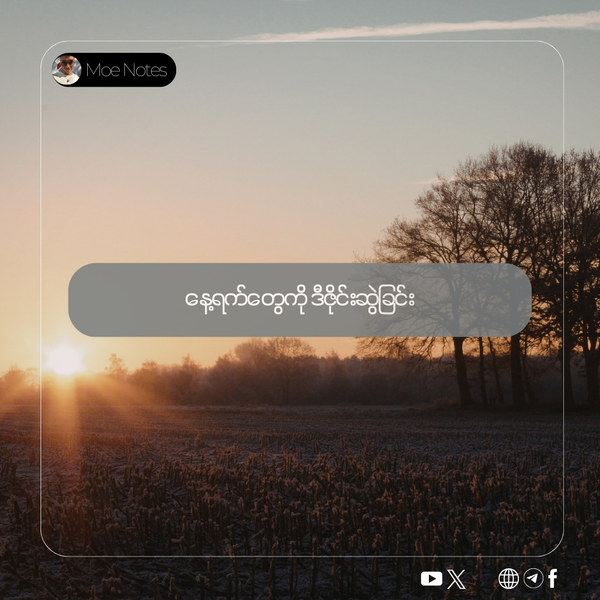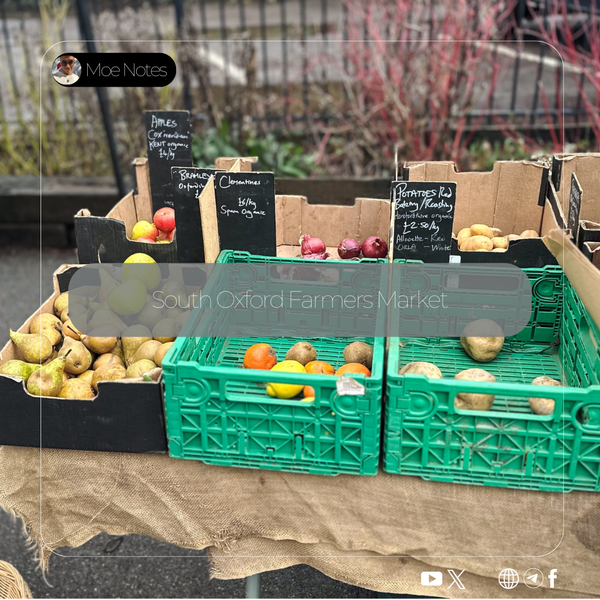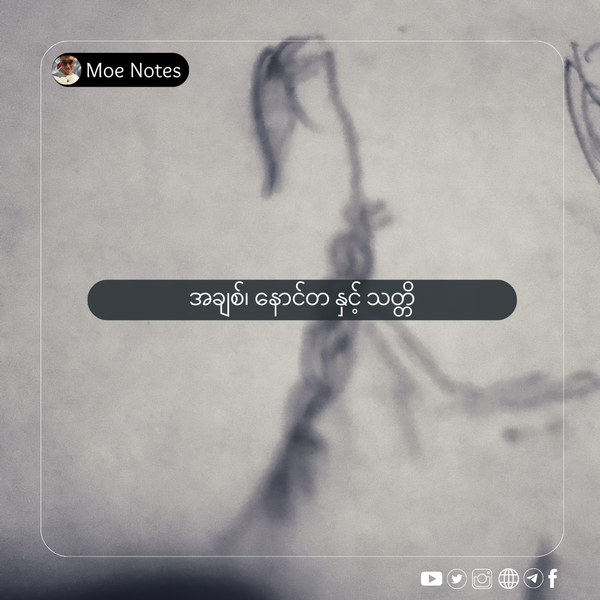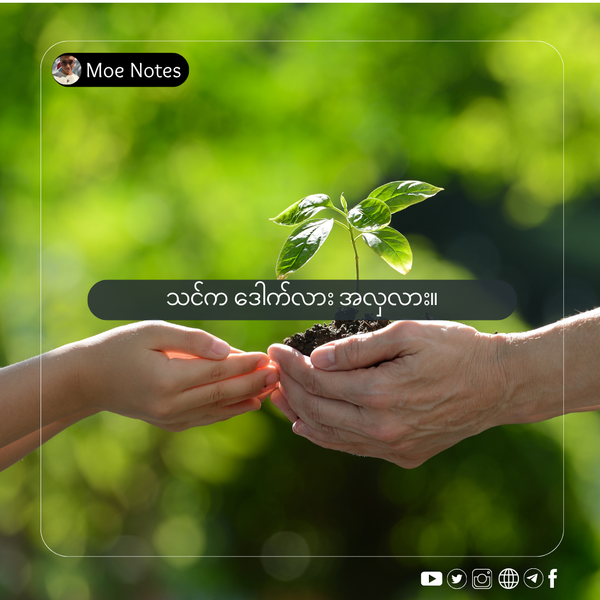The Moe Notes Bible for Studying Abroad: From a Yangon Dream to Oxford Reality

This article is also available in [Burmese]
The sky outside my window is beginning to turn from inky black to a soft, pre-dawn grey. The city is silent. It’s in these quiet moments that I often think about the sheer distance between this life and the one I left behind. Not just the physical miles, but the distance in experience, in mindset, in hope.
Over the past months, I have written down my thoughts and experiences in pieces—a guide to budgeting, a warning about consultants, a diary entry about a tough day. But the journey of a student is not lived in pieces. It is a single, continuous, and often overwhelming path.
This is my attempt to map that path. I have gathered everything I have written, everything I have learned, and everything I wish I had known, into one complete guide. This is the full story, from the strategic decisions made in a small room in Yangon to the daily reality of life as a student in the UK. This is the bible for your journey.
Book I: The Strategic Decision - Planning Your Escape
This first book is about the most critical phase: the planning. These are the decisions you make before you’ve even applied, the ones that will shape your entire future.
Chapter 1: The Self-Audit - Your Starting Point
Before you can plan your journey, you must first have a clear and honest understanding of your starting point. Ask yourself these ten critical questions:
- Current Academic Qualification: (e.g., IGCSE, A-Levels, Myanmar Matriculation)
- Available Budget: (Your realistic, sustainable annual fund, without relying on part-time work.)
- Desired Timeline: (How soon do you need to leave?)
- Intended Major:
- Target Country:
- Family & Career Background: (Will you join a family business or build your own career?)
- Support System ("လူခံ"): (Do you have anyone who can offer practical help abroad?)
- Long-term Goals: (Post-study work, residency, citizenship?)
- Major-Country Alignment: (e.g., Architecture in the UK, Automotive Engineering in Germany.)
- Your "Why": (Your unshakeable, personal reason for doing this.)
Your answers are the foundation upon which you will build your entire plan.
Chapter 2: The Financial Blueprint - Understanding the Real Costs
A realistic budget is the most important part of your plan. Most people make the mistake of underestimating. Here is the reality.
The Big Picture Costs:
- UK/Canada: Starts from ~$35,000 - $40,000+ USD per year for both tuition and living costs. My own budget of ~£30,000 is a realistic figure for a standard UK university outside of London.
- Currency Fluctuation: You must have a significant financial buffer. Between 2023 and 2024, the informal Kyat-to-Dollar exchange rate changed by over 25%, drastically increasing the real cost for families.
Deconstructing Your Living Costs:
- Student Halls (Bills Included): The simplest and most predictable option, especially for first-years. Expect to pay £160-£250/week outside London for an en-suite room.
- Private Renting (Bills NOT Included): The rent may look cheaper (£500-£750/month per person outside London), but you must add £80-£120+ per month for utilities (Gas, Electricity, Water, Internet).
- The Food Reality: Your food budget depends on your body. As a 6-foot-tall, active person, I need to budget £600-£800/month. A more average person might manage on £300-£400. Do not plan to survive on instant noodles; your health and studies will suffer.
- The Miscellaneous Budget: This is not miscellaneous; it's essential. This includes initial setup costs for your empty room (~£500), toiletries, cleaning supplies, a warm coat (£100+), sturdy shoes (£50+), and moving costs (~£500).
Chapter 3: The Educational Maze - Choosing Your Pathway
The qualification you earn before university is critical. The Myanmar Matriculation is not directly recognized by most competitive universities.
- For Younger Students (Grade 7-9): The recommended path is Pre-IGCSE -> IGCSE (2 years) -> A-Levels (2 years). This is a 4+ year marathon, not a sprint. Avoid the "GED Trap"—it is not a quick fix for unprepared students.
- For Post-10th Grade/O-Level Students:
- GCE A-Level (2 years): The "Gold Standard." The best option if you have time and are aiming for top-tier universities.
- OSSD (1 year): A fast and flexible, assignment-based route, especially good for Canada.
- HND/OTHM Diplomas: "Top-up" degree pathways that are cheaper but severely limit your university choices to lower-ranked partner institutions.
Chapter 4: The Research Phase - How to Find and Choose Your University
With tens of thousands of universities in the world, the task of choosing the single one that is right for you can feel impossible. This chapter is your guide to turning a random Google search into a confident, final decision.
Phase 1: Know Thyself - A Quick Recap ../././
Before you can assess any university, you must first assess yourself. As we covered in Chapter 1, you must have a clear idea of your Budget, Qualifications, Target Country, Intended Major, Timeline, and Ultimate Goal. Without these filters, you will be overwhelmed by choice.
Phase 2: The Research - Using Tools to Build Your Longlist
Once you have your personal profile, you can begin the search.
- Your Most Powerful Tool: The QS World University Rankings Start your search at a reputable ranking website like the QS World University Rankings. This site includes almost every major, reputable university that a prospective international student should be considering. You can filter the rankings "by Subject" to see which universities are best for your chosen field, or view the overall "World University Ranking."
- A Live Demo (Oxford Brookes): A search for my university on the QS site gives a snapshot of crucial information: its global rank (#413), the number of programs offered, the average international tuition fee (~£15,000 per year), and typical entry requirements (e.g., IELTS 6.0+, GPA 3.0+).
- Go Deeper: The QS site is your starting point. For detailed information, you must go to the university's official website. If you still have questions, email the university's Admissions Office directly. They are far more reliable than an outside agent.
Phase 3: The Filter - Creating Your Shortlist
Now, you apply your personal checklist from Phase 1 to the list of universities you've found. This is how you filter thousands of options down to a manageable few. This process forces you to be realistic. You will have moments of clarity: "With my budget, that country is not an option," or "If I wait and take A-Levels, I can get into a much better university." This turns a vague wish into a concrete, actionable plan.
Phase 4: The Application - How to Actually Apply
DIY vs. Consultant: You can apply by yourself or through an agent. Applying yourself is often cheaper.
- Official Portals: For undergraduate courses in the UK, you will almost always apply through UCAS (Universities and Colleges Admissions Service). For Ontario, Canada, the portal is OUAC.
A Final Word on Decisions and Regret Before you make a decision, you can hesitate as much as you want. But once you've made your decision, you have to commit to it and move forward. The ability to make the best of whatever situation you land in is also a critical skill for this journey. Your chosen path will never be perfectly straight. But that's okay. When you fall, the important thing is to have the mindset to get back up.
Chapter 5: Finding a Guide - The Truth About Educational Consultants
In the desperate environment of Myanmar, consultants can seem like saviors, but you must be incredibly careful.
- The Problems: Many agencies are biased towards partner schools, provide dishonest or incomplete information, and use fake scholarships as marketing gimmicks.
- A Critical Warning: Never, ever entrust your application or tuition fees to an unregulated "student agent." A current student operating as a paid agent is likely violating their visa conditions and UK financial regulations, and you have zero legal protection if your money disappears.
- Your Solution: Be a partner in your own application, not a passive passenger. Vet any consultant by asking sharp questions, and always seek unbiased advice from current students abroad.
Book II: The Application Gauntlet - Securing Your Place
You have a plan. Now you must execute it. This book covers the practical steps of the application process.
Chapter 6: Your First Conversation - Writing the Personal Statement
The personal statement is not a CV. It is your story. A great statement answers three questions:
- Why this Subject? (Prove your intellectual curiosity with examples beyond your schoolwork).
- Why this University? (Show you've done specific research on their modules and professors).
- Why You? (Connect your skills and life experiences—including your journey from Myanmar—to the course). The goal is not to prove you are perfect, but to prove you are thoughtful, curious, and ready to learn.
Chapter 7: The Final Hurdles - Documents and English Tests
- Document Checklist: You will need official transcripts (translated and notarized), a valid passport, reference letters, and proof of finances.
- IELTS vs. Duolingo: If you can afford the time and money, take the IELTS. It is the "gold standard" and is universally accepted for both university admission and visa applications, making it a safe, "future-proof" investment.
Chapter 8: The Packing Puzzle - A Practical and Sentimental Guide
- Maximize Your Allowance: Use airline "Student Privilege" programs (like those from Qatar Airways or Emirates) to increase your baggage allowance from 30kg to 40kg or more.
- What to Actually Bring:
- Medicine: A 3-month supply of any personal prescription medication, plus a basic first-aid kit.
- Food: Only bring the irreplaceable tastes of home (high-quality laphet, specific condiments). Do not bring meat or dairy.
- Clothing: Bring only a week's worth. It is better to buy functional, climate-appropriate clothing in the UK.
- The Most Important Thing: Bring a small, sentimental object that connects you to your loved ones. A photo, a keychain. On a lonely night, this object will be your anchor.
Chapter 9: The Long Haul - A Guide to the Flight Itself
- Booking: Do not buy the cheapest, non-refundable ticket. Pay a little extra for a flexible fare. Ensure your luggage is "Checked-Through" to your final destination.
- Preparation: Arrive at the airport 4 hours before a long-haul flight. Wear comfortable, loose-fitting clothing and bring a warm hoodie for the cold cabin.
- In-Flight Survival Kit: Pack an eye mask, earplugs, a travel pillow, moisturizer, and your own snacks and downloaded entertainment.
Book III: The First Steps on Foreign Soil - Surviving and Thriving
You've made it. The journey is not over; a new one is just beginning. This book is about how to build your new life.
Chapter 10: The First 48 Hours - A Survival Guide to Arrival
- At Immigration: Have your documents (Passport, Visa, CAS Letter, Accommodation Booking) printed and ready. Have a clear, simple script in your head to answer the officer's questions.
- The Arrival Traps:
- SIM Cards: DO NOT buy an overpriced SIM card at the airport. Wait until you get to your new neighborhood; it will be at least 50% cheaper.
- Taxis: DO NOT take an expensive private taxi from the airport. Use the 24/7 national coach services (like The Airline Bus to Oxford). It will be at least 60% cheaper.
- Food: DO NOT skimp on food in your first few days. Your body is dealing with jet lag and a new climate. Eat proper meals.
Chapter 11: Building Your New Nest - A Case Study in Choosing Accommodation
- Location, Location, Location: Your choice of where to live should be based on three factors: proximity to your specific campus, your daily commute (time and cost), and your lifestyle (access to shops).
- Budgeting: Remember that student halls have a high, all-inclusive price that is easy to budget for. Private renting has a lower advertised rent, but you must add £80-£120+ per month for utilities.
Chapter 12: The Unseen Syllabus - Managing Health, Loneliness, and Freedom
- Health: Get a full dental check-up before you leave Myanmar; dental care in the UK is incredibly expensive. Register with an NHS doctor (GP) and dentist the week you arrive. Prepare for the impact of long, dark winters on your mental health by maintaining a regular sleep schedule.
- Loneliness: You will feel lonely. It is not a possibility; it is a guarantee. Prepare for it by building your "mental health toolkit" (hobbies that recharge you) and scheduling regular video calls with your family.
- Freedom: You will be exposed to a new culture of freedom, including around drinking and sex. Do not become a "victim of fun." Make responsible, informed choices that align with your goals.
Chapter 13: The Responsibility You Must Learn
The single most important skill for surviving abroad is personal responsibility. Many of us are raised in a culture that protects us from it. You must learn it yourself. Start now, before you leave. Learn to cook. Learn to clean. Learn to manage a budget. Learn to solve your own small problems. The freedom to fail in these small tasks at home is the best preparation for succeeding when the stakes are much higher abroad.
Epilogue: The Journey Ahead - Why We Do This
Why go through all this struggle? We do it because we are on a different battlefield. We chose this path not as an escape, but as a strategy to gather the knowledge and skills needed for a real, long-term revolution. I will not stop. When it is our children's turn, I want to be able to say:
"Daddy was part of the revolution. It was terrible in our time. But it's better for you now. You don't have to just memorize. You can ask questions. You can learn."
The journey is hard, but the person you become at the end of it will be far more capable and resilient than you can possibly imagine now.



